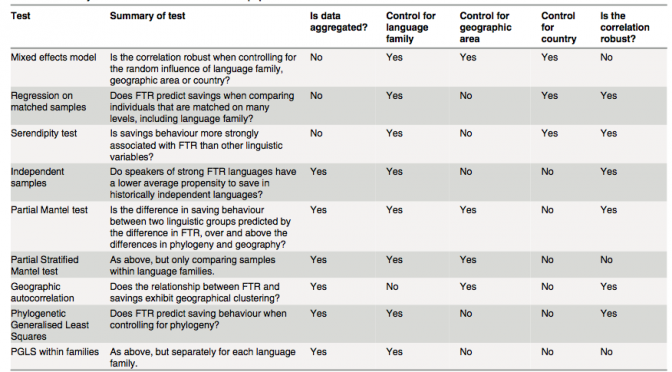This week our paper on future tense and saving money is published (Roberts, Winters & Chen, 2015). In this paper we test a previous claim by Keith Chen about whether the language people speak influences their economic decisions (see Chen’s TED talk here or paper). We find that at least part of the previous study’s claims are not robust to controlling for historical relationships between cultures. We suggest that large-scale cross-cultural patterns should always take cultural history into account.
Does language influence the way we think?
There is a longstanding debate about whether the constraints of the languages we speak influence the way we behave. In 2012, Keith Chen discovered a correlation between the way a language allows people to talk about future events and their economic decisions: speakers of languages which make an obligatory grammatical distinction between the present and the future are less likely to save money.

